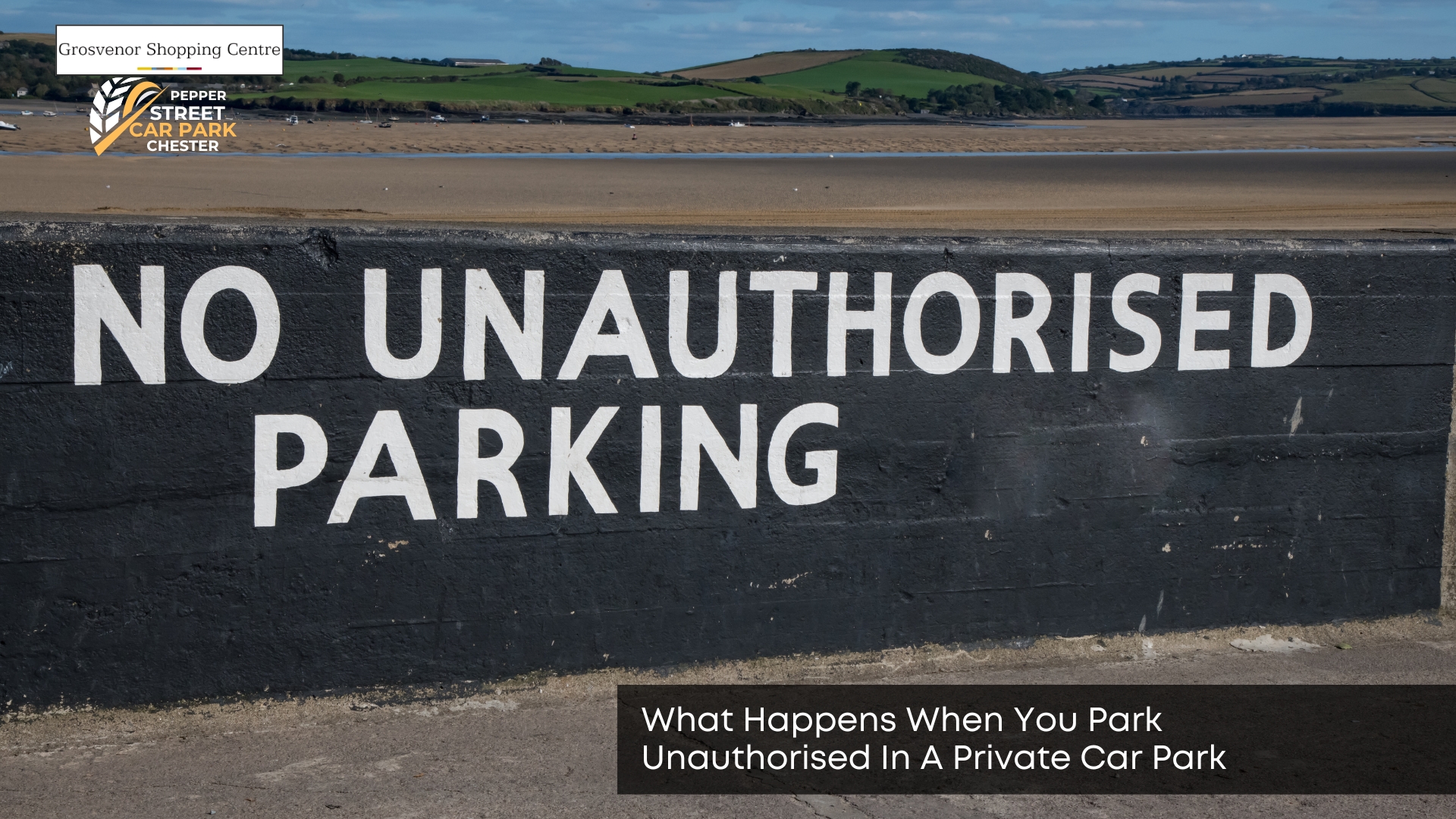Parking in a private car park without following the rules can lead to unexpected charges or even legal action. Many drivers don’t realise that private parking areas have their systems and rules, separate from those of council-run spaces. Whether you’ve received a ticket or want to avoid one, it’s helpful to understand what happens when you park without permission. This guide explains what constitutes unauthorised parking, the penalties you may face, and how to avoid costly mistakes.
What Is a Private Car Park?
A private car park is a parking area owned by a business, landowner, or organisation, rather than by the council or local authority. These car parks are often found at supermarkets, hospitals, shopping centres, flats or offices. The owners usually set their parking terms, such as time limits, charges or permit rules. Signs must be displayed clearly to show the conditions of use. If you break those rules, you may be classed as unauthorised.
Can You Park in a Private Car Park Without Permission?
No, you should not park in a private car park without permission, as it may result in a parking charge. Most car parks require payment, registration or a valid permit to use the space. Even if there’s no barrier or gate, signs still count as legal notices. By entering and parking, you agree to the terms shown. Ignoring these rules can result in penalties, especially when certain actions count as unauthorised.
What Counts as Unauthorised Parking?
Unauthorised parking includes staying longer than allowed, parking without paying, using a space without a permit or ignoring disabled bay rules. It can also mean parking outside marked bays or in restricted areas, such as staff areas or loading zones. Even stopping briefly without permission may be considered a violation if the signs prohibit it. These actions are often picked up by attendants or cameras, which brings us to what happens next.
What Happens If You Park Without Paying or Registering?
If you park without paying or registering, the operator may issue a Parking Charge Notice (PCN) to your vehicle or send one through the post using number plate cameras. These notices are not criminal fines, but civil charges issued by private companies. You’re usually given a deadline to pay or appeal. Failing to respond to the notice could result in additional letters or legal action. This is how many drivers end up with unexpected fines.
Can You Get a Fine for Parking in a Private Car Park?
Yes, you can receive a fine—usually referred to as a Parking Charge Notice for violating the terms of a private car park. The company may leave a ticket on your windscreen or post one to your address if the car park uses ANPR cameras. These fines are based on contract law, and by using the space, you agree to follow the posted terms. If you don’t follow them, a charge is issued. The cost of this fine can vary.
How Much Can Private Parking Fines Cost?
Private parking fines usually range from £50 to £100, though many firms offer a discount if you pay within 14 days. If left unpaid, the charge can increase and may include admin or legal fees. Some operators follow the Code of Practice set by the British Parking Association (BPA), which aims to ensure charges are fair. The total cost can rise quickly if ignored, and this is when questions about enforceability arise.
Are Private Parking Fines Enforceable by Law?
Yes, private parking fines can be enforceable under civil law if the terms were displayed and the company follows the correct process. The charge is considered a breach of contract, and if unpaid, the company may pursue the case in small claims court. A court ruling can make the charge legally binding. Not all fines are valid, though, so it’s important to check your options if you receive one.
Can Private Parking Firms Take You to Court?
Yes, private parking firms can take you to court to recover unpaid charges. Still, they usually attempt to recover the debt through several warnings and letters before resorting to legal action. If the case goes to court, you may have to pay the original fine plus court fees if you lose. Some firms use debt recovery services, which can add pressure but don’t have legal power until a court judgment is made. If you receive a notice, it’s best to act early and know your rights.
What Should You Do If You Get a Parking Charge Notice?
If you receive a Parking Charge Notice, read it carefully and verify that the details are accurate. Look for signs in the car park that explain the rules, and gather any relevant evidence, such as receipts or photos. If you feel the charge is unfair, you can appeal to the parking company with your evidence. Don’t ignore the notice, as doing nothing can lead to further action. The appeal process can yield a fair outcome if handled properly, especially in cases like unauthorised private parking fines where the signage or terms were unclear.
Can You Appeal a Private Parking Fine?
Yes, you can appeal a private parking fine if you believe it was issued unfairly or by mistake. Most companies have an internal appeals process and may cancel the charge if you give a good reason. If they reject your appeal, you can take it further to an independent body, such as POPLA (for BPA members). Appeals must be made within set time limits, so act quickly. Strong evidence improves your chances of success.
What Evidence Helps When Disputing a Fine?
Useful evidence includes clear photos of signs, the bay where you parked, pay-and-display tickets, or screenshots from parking apps. A receipt from the shop or facility may also support your case. If poor lighting or unclear signs confuse you, photograph those too. Timed images and written explanations help strengthen your appeal. With the right evidence, even the toughest cases can sometimes be overturned.
What Are Common Myths About Private Parking Rules?
Common myths include the notion that private parking fines are not legal, that you don’t have to pay if there’s no barrier, or that only the police can issue penalties. In truth, private fines are based on contract law and can be enforced in court. Another myth is that you can ignore letters without consequences. Knowing the facts helps avoid falling into these traps, especially if you often park at a central Chester car park where clear rules make all the difference.
How Can You Avoid Unauthorised Parking in the Future?
You can avoid unauthorised parking by always reading the signs before leaving your car, using pay stations or apps correctly, and checking if a permit is needed. Look for marked bays and avoid areas that are reserved or restricted. If in doubt, choose an alternative car park or ask staff for assistance. A few seconds spent checking can save a lot of stress and money later on, especially if you’re unsure where to park in Chester safely with EV charging and time-limited bays.
What’s the Best Way to Park Safely in Private Car Parks?
The best way to park safely in private car parks is to follow the posted rules, keep your ticket or app confirmation, and stay within the designated time limit. Park neatly in the marked bays, avoid blocking others, and refrain from using spaces designated for disabled or staff use without permission. Keeping your details up to date on parking apps also helps avoid errors. With care and attention, parking privately can stay simple and worry-free.


Leave a Reply